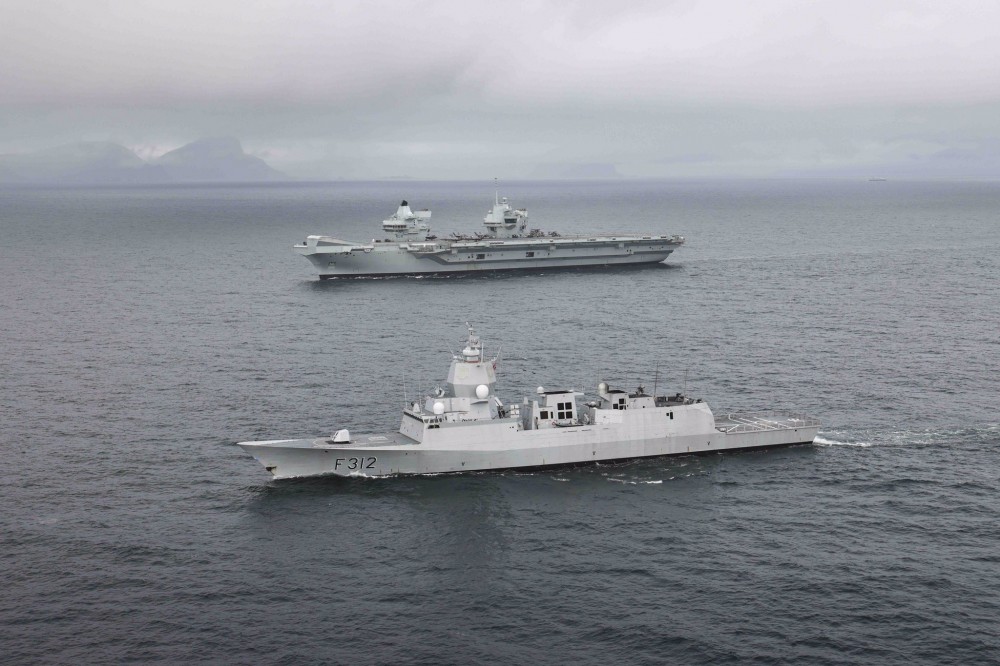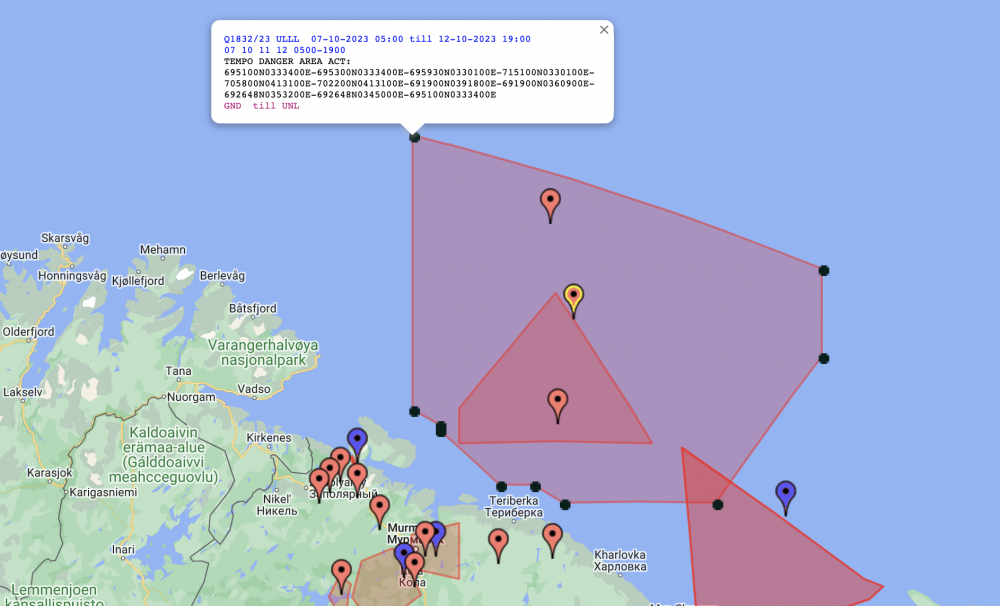F-35s intercept Russian maritime patrol aircraft that came near carrier group
A group of British and Norwegian F-35s were scrambled to escort the Russian military plane that flew in vicinity of HMS Queen Elizabeth off the coast of northern Norway this week.

The Russian plane, which came from the Kola Peninsula, flew in proximity to the HMS Queen Elizabeth, the UK Carrier Strike Group informed on Twitter (X) Friday.
F-35Bs were launched from the deck of the carrier and flew alongside the Russian aircraft together with Norwegian F-35As.
The British carrier group has for the last two weeks exercised with Norway and several other NATO countries off the coast of northern Norway, among them Germany, Belgium, France, the United States, plus the two newcomers Finland and (soon) Sweden.
The Norwegian frigate Otto Sverdrup has led the carrier group while operating in Norwegian waters.
For security reasons, neither the Norwegians nor the UK Navy are willing to disclose positions, but on Thursday the HMS Queen Elizabeth posted photos on Twitter (X) showing crew members undertaking the so-called Blue Nose Ceremony, an adventure mariners arrange when crossing the Arctic Circle.
On October 4, other photos were posted showing the steep mountainsides along the coast of Northern Norway.
The 280-meter-long carrier Queen Elizabeth brings helicopters and a fleet of F-35 fighter jets. She has a crew of approximately 700, increasing to the full complement of 1,600 when all aircraft are embarked.
Further north, into the Barents Sea, Russia has issued military NOTAM warnings for a larger airspace in the maritime border areas with Norway from Saturday, October 7 until the 12th.
Located in Kirkenes, Norway, just a few kilometres from the borders to Russia and Finland, the Barents Observer is dedicated to cross-border journalism in Scandinavia, Russia and the wider Arctic.
As a non-profit stock company that is fully owned by its reporters, its editorial decisions are free of regional, national or private-sector influence. It has been a partner to ABJ and its predecessors since 2016.
You can read the original here.

